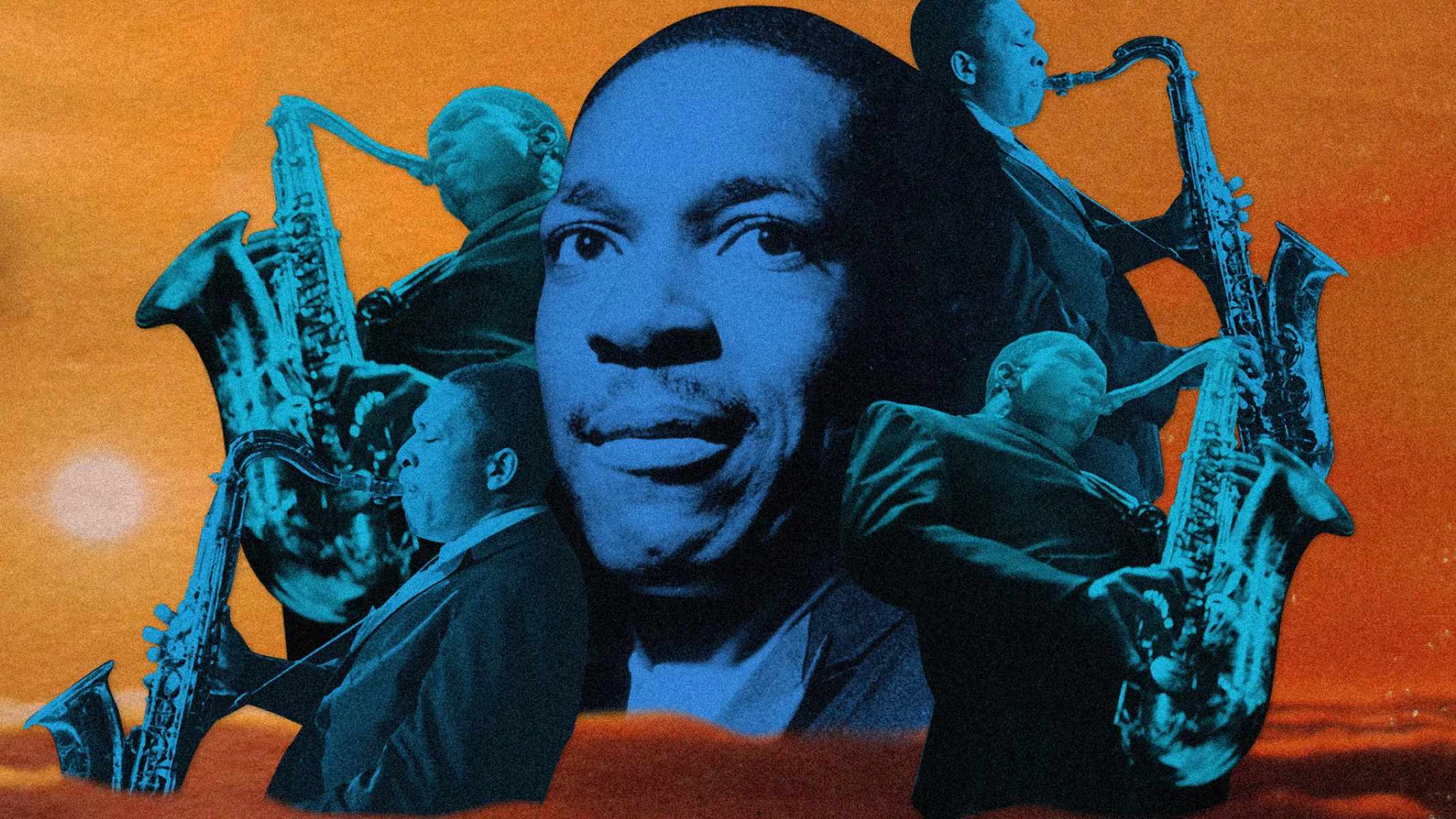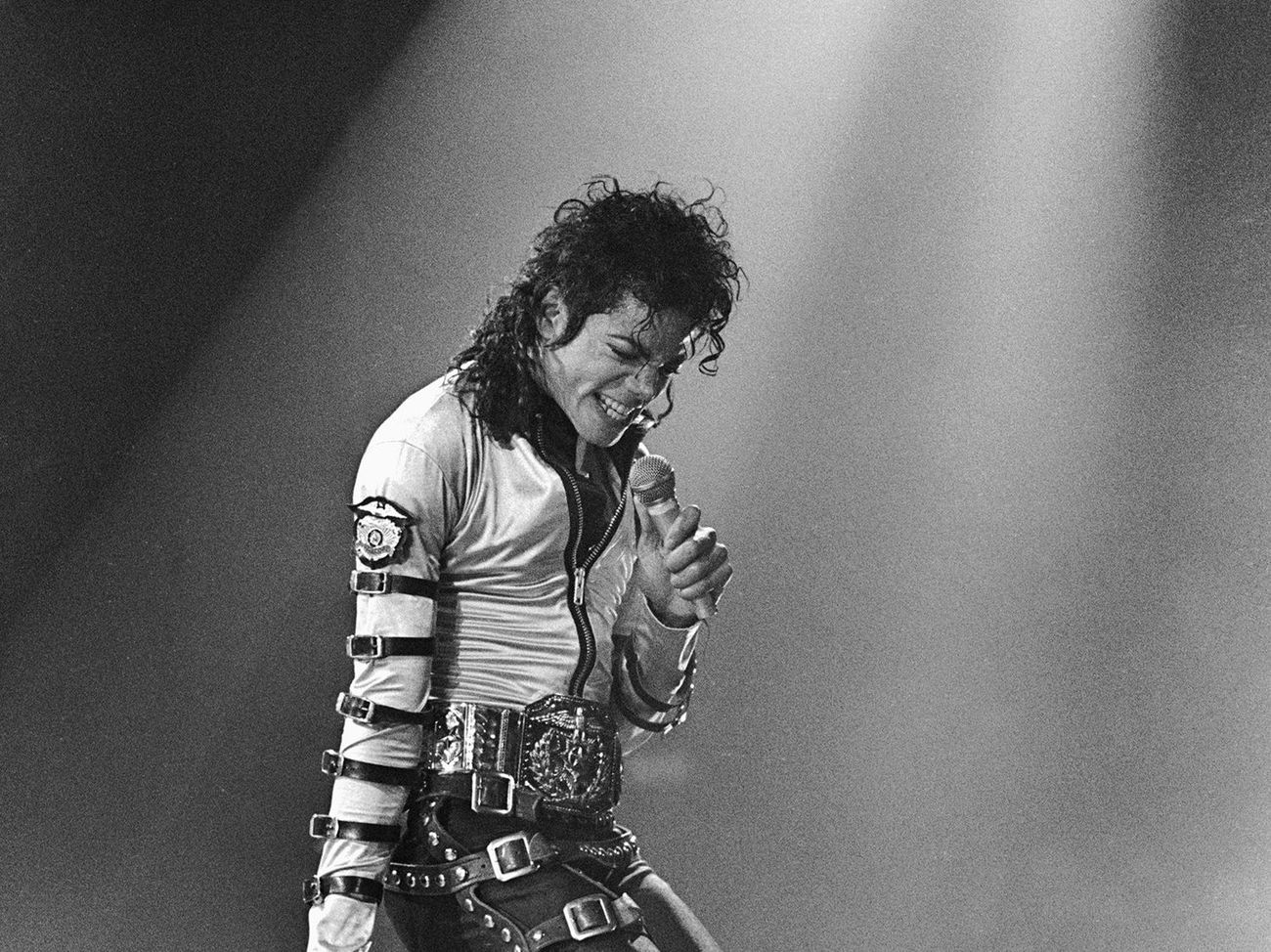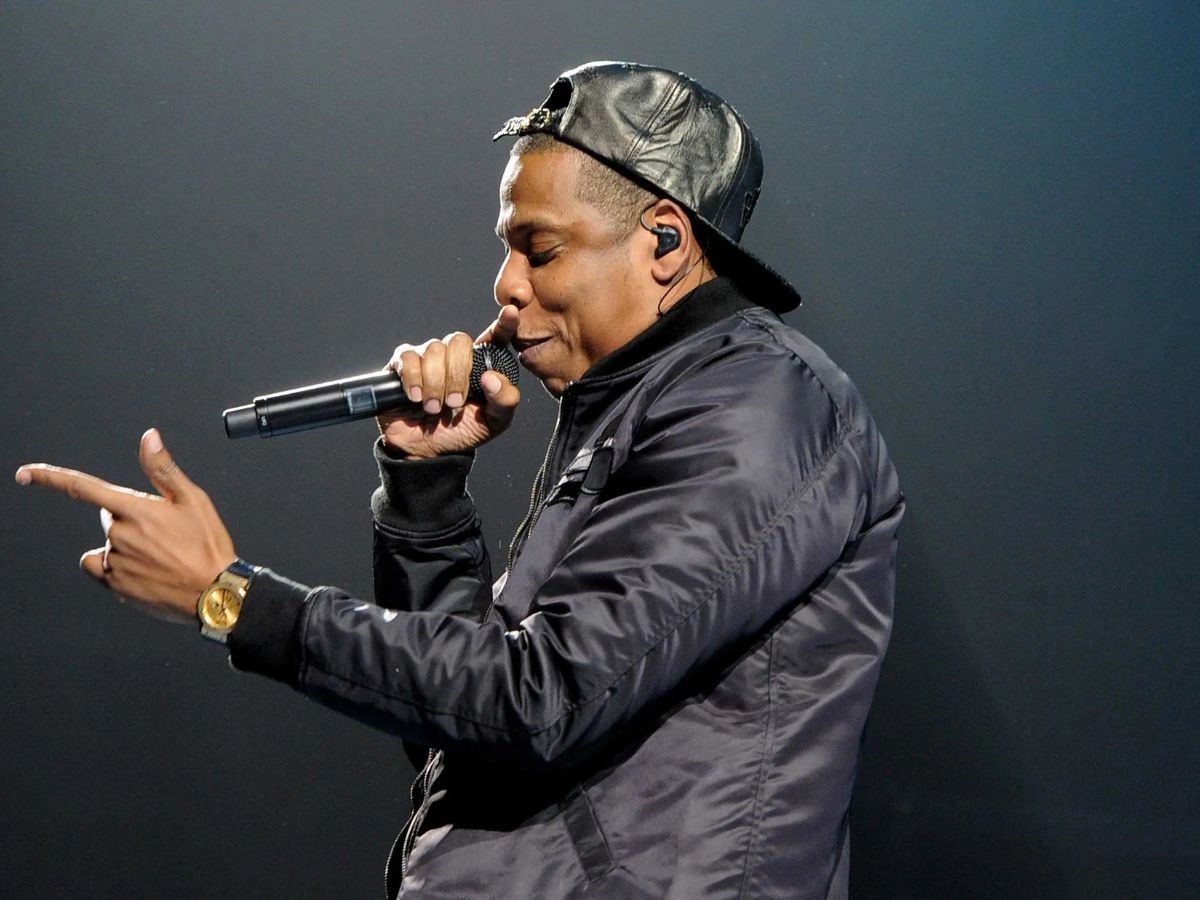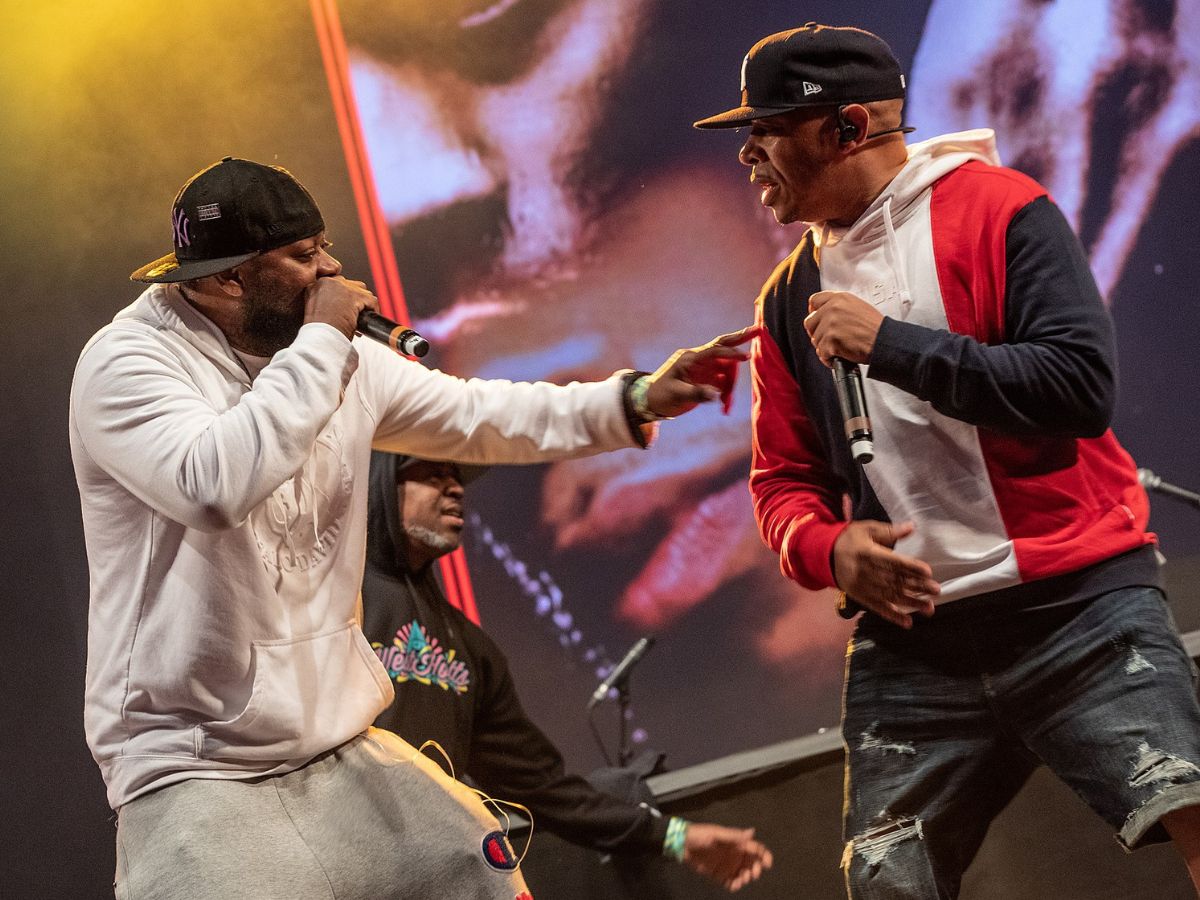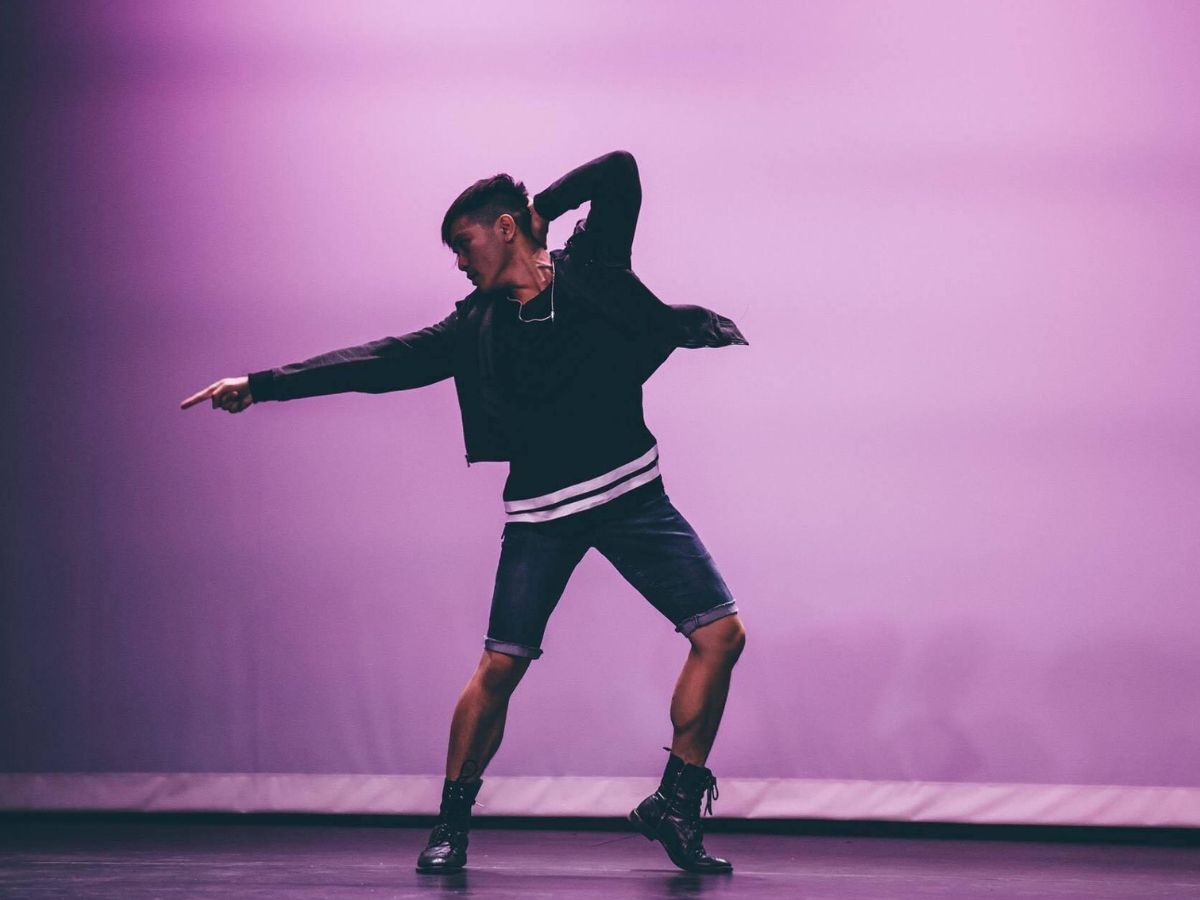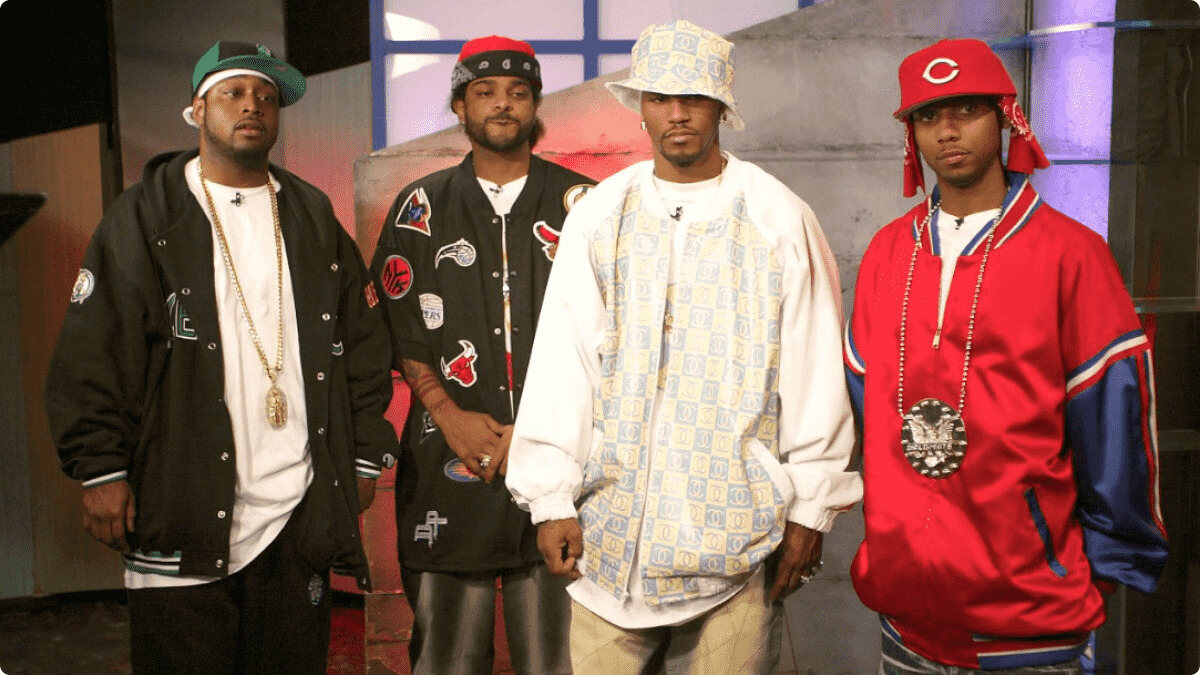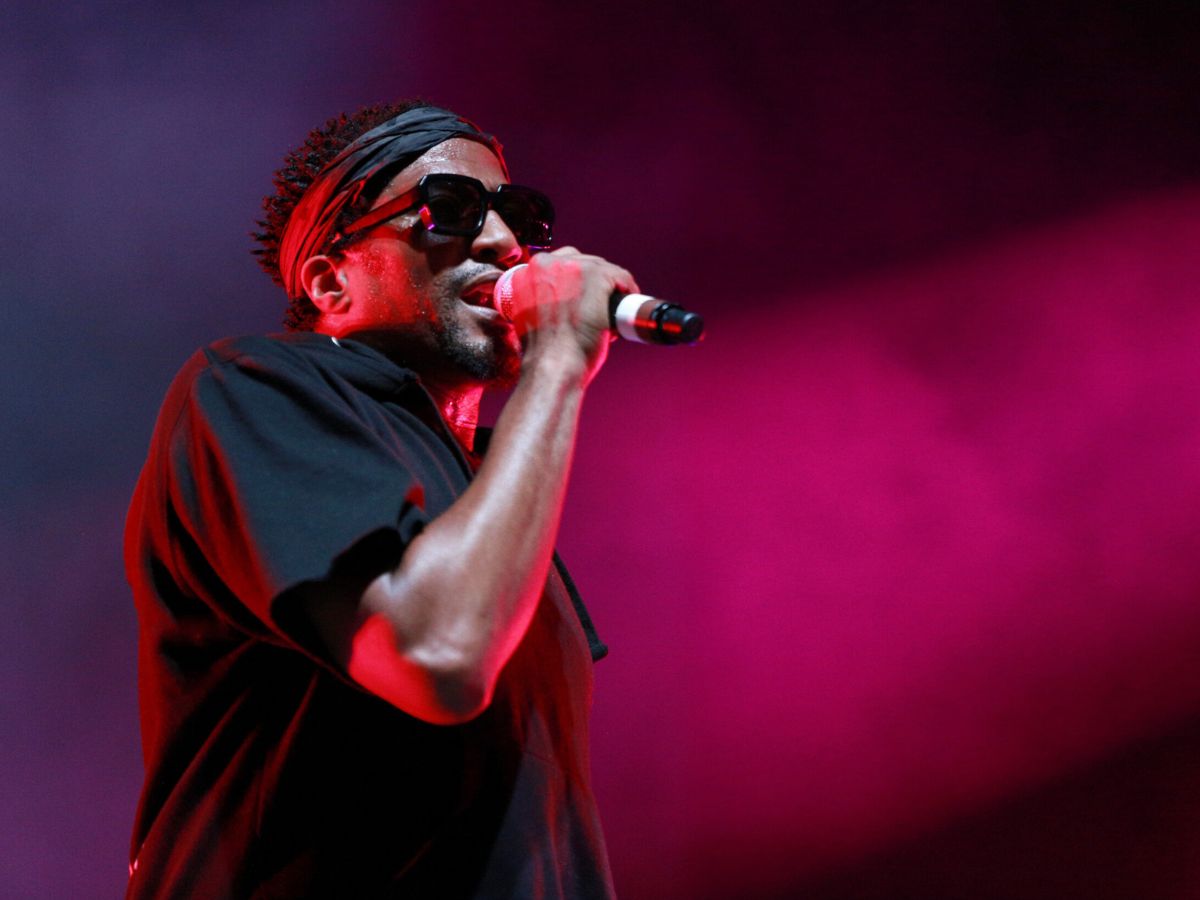

Hip Hop
Why Is Hip Hop Important
Modified: January 22, 2024
Discover why hip hop has become such a crucial artform and cultural movement. Explore the rich history and evolving impact of hip hop on society.
(Many of the links in this article redirect to a specific reviewed product. Your purchase of these products through affiliate links helps to generate commission for AudioLover.com, at no extra cost. Learn more)
Table of Contents
Introduction
Hip Hop is a cultural phenomenon that has had a profound impact on society, transcending its origins as a music genre. Emerging in the 1970s in the Bronx, New York, Hip Hop quickly became a form of artistic expression for marginalized communities, giving a voice to those who had long been silenced. It has evolved into a global movement, influencing not only music but also fashion, language, and activism.
What sets Hip Hop apart from other genres is its ability to reflect the realities of everyday life, addressing social issues and providing an outlet for creativity and self-expression. Through its powerful lyrics, catchy beats, and distinct visual style, Hip Hop has captured the hearts and minds of millions worldwide.
In this article, we will explore the historical origins of Hip Hop, its cultural influence, and its significance as a platform for social commentary and artistic expression. We will also examine its impact on fashion, language, and how it has empowered individuals to break stereotypes and foster entrepreneurship. By delving into the multifaceted nature of Hip Hop, we can truly understand why it has become such an important part of contemporary culture.
Historical Background
Hip Hop originated in the early 1970s in the Bronx, New York, as a response to the social and economic challenges faced by African American and Latino communities. It emerged as a cultural movement that combined elements of music, dance, fashion, and art. The pioneers of Hip Hop, known as “The Founding Fathers,” laid the foundation for what would become a global phenomenon.
The roots of Hip Hop can be traced back to block parties and community gatherings, where DJs would mix and blend different genres of music, creating a unique sound. This practice, known as “breakbeating,” laid the groundwork for what would later become the iconic Hip Hop beats. These beats provided the backdrop for MCs, or rappers, to deliver powerful and poetic verses, often reflecting the harsh realities of urban life.
As the popularity of Hip Hop grew, so did its influence. Record labels began to take notice, and artists like Grandmaster Flash, Afrika Bambaataa, and Kurtis Blow gained mainstream recognition. The release of the first commercially successful Hip Hop song, “Rapper’s Delight” by Sugarhill Gang in 1979, propelled the genre into mainstream culture.
Throughout the 1980s and 1990s, Hip Hop continued to evolve and diversify. Different subgenres emerged, including gangsta rap, conscious rap, and alternative rap, each offering a unique perspective and lyrical style. Artists like N.W.A, Public Enemy, and Tupac Shakur used their music as a platform to address social and political issues, shedding light on topics such as police brutality, poverty, and racial inequality.
Today, Hip Hop has become a global sensation, with artists from all around the world incorporating its distinctive sound and style into their music. The cultural impact of Hip Hop cannot be overstated, as it has provided a voice for marginalized communities, telling their stories and challenging societal norms.
Cultural Influence
Hip Hop has had a significant cultural influence, shaping not only the music industry but also fashion, dance, art, and even technology. Its impact resonates across generations and has reshaped popular culture in profound ways.
One of the key cultural contributions of Hip Hop is its influence on fashion. From the early days of baggy clothes and oversized accessories to the emergence of streetwear brands like Supreme and Off-White, Hip Hop has been at the forefront of urban fashion trends. Artists like Run-DMC popularized Adidas sneakers and Kangol hats, while figures like Pharrell Williams and Kanye West have made significant contributions to the fashion industry with their own clothing lines.
In addition to fashion, Hip Hop has also transformed the art world. Graffiti, a visual form of expression prominent in Hip Hop culture, has gained recognition as a legitimate art form. Artists like Jean-Michel Basquiat and Keith Haring, who started their careers in graffiti, have become celebrated figures in the art world, demonstrating the influence of Hip Hop on visual arts.
Dance is another area where Hip Hop has left its mark. From breakdancing to krumping, Hip Hop dance styles have become widely recognized and practiced around the world. Dance crews like the Rock Steady Crew and the JabbaWockeeZ have gained fame through their performances, showcasing the athleticism and creativity that define Hip Hop dance.
Furthermore, the technological advancements in music production owe much to Hip Hop. The use of samples, drum machines, and sampling techniques pioneered by Hip Hop producers revolutionized the music industry. Today, genres like EDM and pop heavily rely on these production techniques that were first explored in Hip Hop.
All in all, Hip Hop’s cultural influence is undeniable. It has permeated various facets of society, shaping trends, pushing boundaries, and providing a platform for self-expression.
Social Commentary
One of the defining features of Hip Hop is its ability to serve as a powerful form of social commentary. From its early beginnings, Hip Hop has provided a voice for marginalized communities, addressing issues such as racism, poverty, inequality, and police brutality.
Through their lyrics, Hip Hop artists have shed light on the struggles and realities faced by individuals living in disadvantaged neighborhoods. They bring attention to the systemic injustices that persist in society, sparking conversations and pushing for change. Artists like Public Enemy, N.W.A, and Kendrick Lamar have used their music to challenge the status quo and advocate for social justice.
Furthermore, Hip Hop has been a platform for expressing political dissent and protest. During the Civil Rights Movement and its aftermath, artists like Gil Scott-Heron and The Last Poets used spoken word poetry and music to rally against injustice. In more recent times, artists like Common, Talib Kweli, and J. Cole have continued to use their platform to address political issues and inspire activism.
In addition to addressing broader social issues, Hip Hop also tackles personal struggles and mental health. Artists like Kanye West, Eminem, and Kid Cudi have opened up about their experiences with depression, addiction, and other mental health challenges. Their vulnerability and willingness to discuss these topics in their music have helped break down stigmas surrounding mental health and encourage conversation and support.
Overall, Hip Hop serves as a medium for raising awareness and promoting social change. It provides a voice for the voiceless, challenges societal norms, and encourages critical thinking and dialogue. Through its powerful lyrics and relatable storytelling, Hip Hop continues to be a catalyst for social commentary and an inspiration for activism.
Artistic Expression
Hip Hop is a powerful form of artistic expression that allows individuals to convey their stories, emotions, and experiences through music, lyrics, dance, and visual art. It provides a platform for creative freedom and allows artists to express their unique perspectives and identities.
One of the most notable elements of artistic expression in Hip Hop is through the lyrical content. Rappers use their lyrics to paint vivid pictures, tell stories, and express their thoughts and feelings. They use wordplay, metaphors, and similes to create intricate and thought-provoking verses. The lyrical prowess of artists like Jay-Z, Nas, and Lauryn Hill has earned them critical acclaim and solidified Hip Hop as a legitimate art form.
Furthermore, the production side of Hip Hop showcases the creativity of producers in crafting distinct beats and instrumental compositions. The use of samples, drum machines, and synthesizers allows for experimentation and innovation, creating unique sounds that become synonymous with an artist’s style. Producers like Dr. Dre, J Dilla, and DJ Premier have made significant contributions to the sonic landscape of Hip Hop.
Dance is another form of artistic expression within Hip Hop. From breakdancing to popping and locking, the high energy and technical skill exhibited in Hip Hop dance performances captivate audiences. Dancers use their bodies as a canvas, expressing rhythm, creativity, and individuality through their movements.
Visual art, particularly graffiti, is closely tied to Hip Hop culture. Graffiti artists have transformed cityscapes into vibrant and visually stunning murals, often conveying political and social messages. Their artwork adds to the visual aesthetic of Hip Hop and is an integral part of the culture’s artistic expression.
Overall, Hip Hop provides a platform for artists to express themselves authentically, pushing the boundaries of creativity and challenging conventional norms. It allows for individuality and freedom of expression, making it a powerful and dynamic art form.
Influence on Fashion
Hip Hop has had a profound influence on fashion, shaping trends and styles that have become iconic in popular culture. From the early days of baggy clothes and oversized accessories to the current prominence of streetwear, Hip Hop’s impact on fashion is undeniable.
Hip Hop fashion emerged as a reflection of the urban street culture that the genre originated from. Early hip hop artists wore clothes that represented their identity and sense of style. Baggy jeans, oversized t-shirts, and tracksuits became signature elements of Hip Hop fashion, allowing for comfort and freedom of movement.
As Hip Hop gained popularity and reached mainstream audiences, its influence on fashion became more pronounced. Artists like Run-DMC popularized Adidas sneakers, pairing them with tracksuits and gold chains. This trend sparked a love for sportswear and athletic brands within the Hip Hop community.
The 1990s saw a shift in Hip Hop fashion with the rise of streetwear brands like Tommy Hilfiger, FUBU, and Sean John. These brands incorporated elements of Hip Hop culture into their designs, offering clothing that blended street style with luxury and sophistication.
In recent years, Hip Hop fashion has become more diverse and inclusive. Artists like Kanye West and Pharrell Williams have launched their own fashion lines, pushing the boundaries of streetwear and merging high fashion with urban aesthetics. Their influence can be seen in the rise of designer sneakers, graphic tees, and unconventional styling.
Moreover, Hip Hop’s impact on accessories cannot be overlooked. Chains, large hoop earrings, and caps are common elements in Hip Hop fashion, providing a way for individuals to express their unique style and identity.
Overall, Hip Hop fashion has transcended its subculture roots to become a global phenomenon. It has shaped contemporary fashion trends and continues to inspire designers and individuals to embrace their personal style and embrace the hip-hop aesthetic.
Impact on Language and Slang
Hip Hop has had a significant impact on language and slang, contributing new words, phrases, and expressions to the vernacular. Through its lyrics and cultural influence, Hip Hop has shaped the way people speak, influencing not only urban communities but also mainstream society.
One of the key contributions of Hip Hop to language is the creation of new terms and slang. Rappers have a unique ability to craft inventive and catchy phrases that resonate with listeners. Words like “phat,” “fly,” “dope,” and “fierce” have all found their way into everyday language, thanks to Hip Hop’s influence.
Rappers also engage in clever wordplay, using metaphors, similes, and double entendres to convey their messages. This linguistic creativity has had a lasting impact, with phrases like “drop the mic,” “throw shade,” and “bling bling” becoming part of the cultural lexicon.
Furthermore, Hip Hop has introduced regional slang and dialects to a global audience. Different regions in the United States, such as the East Coast, West Coast, and Southern states, have their own distinct linguistic styles, which are showcased in Hip Hop music. Artists like Notorious B.I.G., Snoop Dogg, and Outkast have brought their respective regional accents and slang to the forefront, contributing to the diversity of Hip Hop language.
Hip Hop has also been instrumental in breaking down language barriers. With its global popularity, the genre has allowed for the exchange of ideas and cultural expression across different languages and countries. Artists like Pitbull, J Balvin, and BTS have successfully blended Hip Hop with their native languages, showcasing the universal appeal of the genre.
Overall, Hip Hop has had a transformative impact on language and slang, introducing new words and expressions while celebrating regional diversity. It continues to evolve and shape linguistic norms, leaving a lasting imprint on the way we communicate.
Empowerment and Activism
Hip Hop has been a driving force for empowerment and activism, providing a platform for marginalized communities to voice their concerns, challenge societal norms, and advocate for social change. Through its powerful lyrics and cultural influence, Hip Hop has inspired individuals to take action and make a difference.
One of the ways Hip Hop empowers individuals is by giving a voice to those who often feel unheard. Artists use their music to address issues of social inequality, racism, police brutality, and economic disparities. By shedding light on these issues, Hip Hop brings awareness to the struggles faced by marginalized communities and amplifies their experiences.
Moreover, Hip Hop has become a tool for activism, sparking conversations and inspiring collective action. Artists like Common, Talib Kweli, and Kendrick Lamar use their music to raise awareness about important social issues and encourage listeners to get involved. They push boundaries, challenge systemic injustices, and demand accountability from those in power.
Hip Hop has also empowered individuals to express themselves authentically, unapologetically embracing their identities. The genre celebrates diversity, breaking down stereotypes and promoting self-acceptance. Artists like Queen Latifah, Missy Elliott, and Cardi B have become role models, inspiring others to embrace their unique voices and pursue their dreams.
Additionally, Hip Hop has fostered a sense of community and collaboration. The genre has birthed movements like #BlackLivesMatter, which seek to address racial injustice. It has also led to the formation of organizations like Hip Hop Caucus, which uses Hip Hop culture to mobilize and empower communities, particularly young people, to take part in social and political change.
Ultimately, Hip Hop’s ability to empower and inspire activism lies in its ability to capture the raw emotions and experiences of its audience. It resonates with individuals who see themselves reflected in the music and lyrics, encouraging them to stand up, speak out, and strive for a more equitable society.
Breaking Stereotypes
Hip Hop has played a crucial role in breaking stereotypes and challenging societal perceptions. It has provided a platform for individuals to defy expectations and showcase their talents, regardless of their race, gender, or socioeconomic background.
One of the stereotypes that Hip Hop has shattered is the notion that success in the music industry is limited to a certain demographic. Hip Hop has propelled artists from diverse backgrounds to achieve global recognition and acclaim. Icons like Jay-Z, Eminem, and Cardi B have defied expectations, proving that talent and dedication transcend societal barriers.
Moreover, Hip Hop has challenged gender norms and empowered female artists to make their mark in a historically male-dominated industry. Women in Hip Hop, such as Queen Latifah, Lauryn Hill, and Nicki Minaj, have broken stereotypes by showcasing their lyrical prowess and entrepreneurial ventures.
Hip Hop has also given a voice to those who have been marginalized and misrepresented in mainstream media. It has provided a platform for artists to share their stories and shed light on their struggles. By addressing topics like poverty, discrimination, and societal inequalities, Hip Hop confronts stereotypes and fosters empathy and understanding.
Furthermore, Hip Hop has challenged stereotypes associated with urban communities. It has demonstrated the richness of diverse cultural expressions and the potential for growth and success that exists in these communities. Hip Hop’s emphasis on creativity, resilience, and overcoming adversity has shattered the perception that urban areas are only associated with crime or poverty.
Ultimately, Hip Hop’s ability to break stereotypes lies in its authenticity and the diversity of voices it represents. Its power lies in providing individuals with a platform to share their stories, challenge societal norms, and redefine what success and accomplishment look like.
Hip Hop Entrepreneurship
Hip Hop has not only revolutionized the music industry but has also paved the way for entrepreneurial endeavors, fostering a spirit of innovation and self-empowerment. Many Hip Hop artists have taken their creativity and business acumen to build successful ventures beyond their music careers.
One of the key areas in which Hip Hop artists have excelled is in fashion and streetwear. Artists like Kanye West, Jay-Z, and Rihanna have launched their own clothing lines, partnering with high-end fashion brands or creating their own labels. By leveraging their influence and personal style, they have disrupted the fashion industry and made a significant impact on streetwear trends.
In addition to fashion, Hip Hop artists have ventured into other industries, such as film and television. Artists like Ice Cube, Will Smith, and Queen Latifah have not only conquered the music charts but also made successful transitions into acting and producing. They have used their platform and creative vision to tell stories that resonate with diverse audiences, breaking down barriers and expanding opportunities.
Furthermore, Hip Hop artists have embraced digital platforms and technology to innovate and reach their audiences directly. With the rise of streaming services and social media, artists have the ability to release and promote their music independently, bypassing traditional record labels. This autonomy allows them to exercise greater control over their creative output and build strong, direct relationships with their fans.
Hip Hop has also inspired entrepreneurship grounded in community empowerment. Many artists have initiated philanthropic efforts and invested in their local communities. They have established foundations, scholarship programs, and community centers to provide resources, mentorship, and support to aspiring artists and individuals in need.
By embracing entrepreneurship, Hip Hop artists have become not only cultural icons but also successful businesspeople. They have demonstrated that creativity, passion, and an entrepreneurial mindset can lead to newfound opportunities and economic empowerment.
Overall, Hip Hop’s impact on entrepreneurship extends beyond the lyrics and beats. It cultivates a mindset of creativity, innovation, and self-empowerment, inspiring individuals to pursue their passions and build their own successful ventures.
Conclusion
Hip Hop has become a global cultural phenomenon that extends far beyond its origins as a music genre. It has shaped contemporary culture, influenced fashion trends, transformed language and slang, and empowered individuals to challenge stereotypes and strive for social change. From its beginnings in the Bronx in the 1970s to its current global reach, Hip Hop has captured the hearts and minds of millions around the world.
With its powerful lyrics, infectious beats, and dynamic artistic expression, Hip Hop has become a platform for social commentary, raising awareness about social issues and advocating for justice and equality. It has given a voice to marginalized communities, allowing them to share their stories and experiences. As a powerful form of artistic expression, Hip Hop has influenced not only music but also fashion, dance, visual art, and even technology.
Through its impact on fashion, Hip Hop has shaped style trends and challenged conventional notions of urban fashion. It has provided a space for self-expression and encouraged individuals to embrace their unique identities. Moreover, Hip Hop has influenced language and slang, introducing new words and phrases that have become part of everyday vocabulary, while also breaking down language barriers and celebrating regional diversity.
Hip Hop has also empowered individuals to take ownership of their narratives and break stereotypes that limit their potential. It has fostered a spirit of entrepreneurship, inspiring artists to build successful ventures beyond their music careers and make an impact in industries such as fashion, film, and technology. Additionally, Hip Hop has sparked activism and community involvement, as artists use their platform to shed light on social injustices and inspire collective action.
In conclusion, Hip Hop’s significance goes beyond entertainment; it is a cultural force that shapes our society, challenges norms, and empowers individuals. Its impact continues to evolve and inspire new generations to express themselves creatively, strive for social justice, and build successful ventures. Hip Hop’s journey from the streets of the Bronx to global recognition is a testament to its enduring influence and its ability to create positive change in the world.

